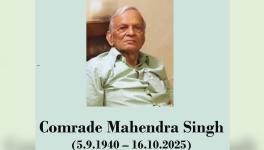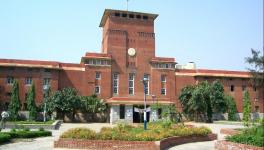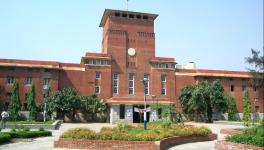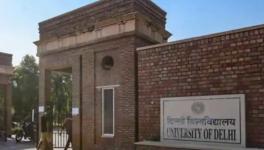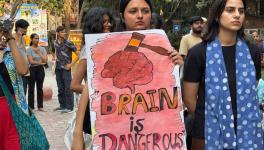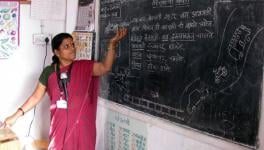Abandon Plans for ITEP as it Takes Back Teachers to Colonial India, say Eminent Educators
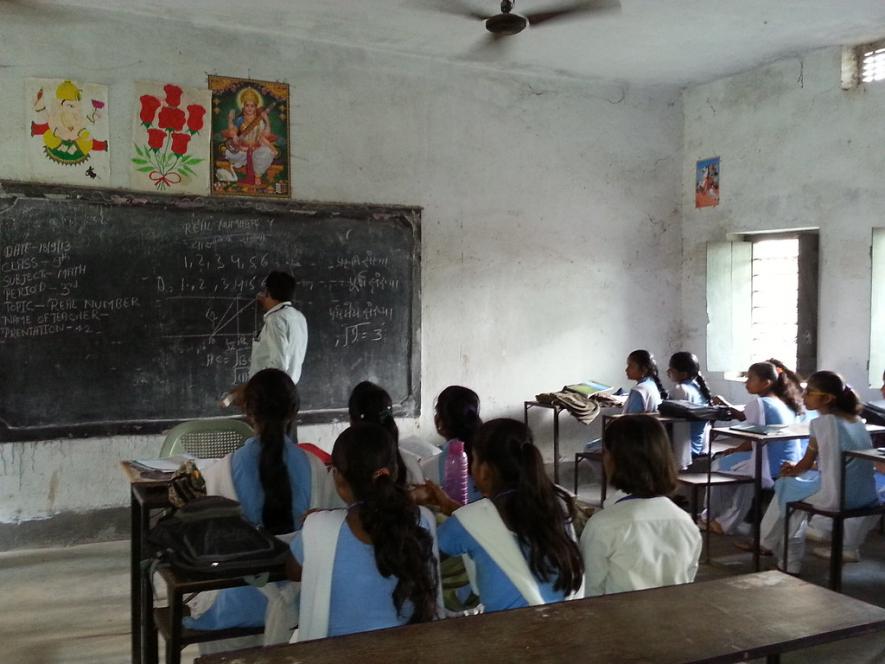
Representational Image. Image Courtesy: Flickr
Eminent educators from prestigious universities worldwide raised concerns regarding scraping Bachelor's program in Elementary Education (B.El.Ed ) at Delhi University and replacing it with the Integrated Teachers Education Program (ITEP). They highlighted that the new program deprives teachers of their autonomy.
National Council for Teachers Education (NCTE) recently invited applications from institutions to run ITEP as a pilot experiment. However, teachers maintain that B.El.Ed trained teachers in crucial subjects such as gender, theatre, child development, education theory, psychology, history and political sciences, and the new program completely lacked rigour.
In a joint letter addressed to Delhi University Vice Chancellor Yogesh Singh, also acting Chairman, NCTE, Edward Vickers, UNESCO Chair Professor on Education for Peace, Social Justice and Global Citizenship, Kyushu University, along with stalwarts like Henry Giroux, Chaise LaDousa, Paul Morris, Christopher Winch and Ken Zeichner said that schools have a vital role to play in preparing young people both for employment and for a future as thinking citizens of a democracy.
For this purpose, school teachers need the independence and confidence that thorough academic and professional training can provide.
The letter said, "In colonial times, training and inspection systems for Indian schools deliberately denied schoolteachers professional status and autonomy. The colonial regime sought to make schooling an instrument of social and political control. But in an independent, democratic India, authority to devise programs of professional training for teachers properly belongs not to politicians or bureaucrats, but to academic specialists in education."
It added, "Despite a constitutional commitment to prioritise elementary education, in contemporary India, governments of all stripes have neglected the country's schools. Elementary school teachers mostly receive only rudimentary, sub-degree-level training. This is typically provided in stand-alone diploma-awarding institutions (DIET) or low-status universities B.Ed. Programs segregated from the academic mainstream. The result is a teaching workforce deprived of the knowledge, skills and autonomy teachers need."
The educators argued that B.El.Ed. Program at Delhi University, established in 1994, has pioneered efforts to bring a new professionalism to elementary school teacher education. As India's first comprehensive, university-level pre-service program for elementary school teachers, the B.El.Ed. integrates teacher education with undergraduate studies in various disciplines.
As such, the program implements the recommendations of major commissions that have reviewed teacher education in India.
They added that B.El. Ed has been a model for programs offered by prestigious colleges of liberal arts and sciences nationwide. It offers a dynamic combination of instruction in subject knowledge, educational theory, child development, psychology, sociology, philosophy, linguistics and more.
Its notable innovations include compulsory courses on story-telling, drama, gender and inclusion. B.El.Ed. alums are renowned for their excellence and are much sought after by various employers in the education field.
They said that compared with the B.El.Ed., the new ITEP program offers a greatly reduced grounding in studying education. Adopting a 3+1 approach, the ITEP requires students to follow regular undergraduate studies in the first three years, with teacher education offered only in the final, fourth year.
The educational courses available to ITEP students in that final year lack the breadth and rigour of those offered by the B.El.Ed. Classes in educational and learning theory; child development; drama; gender and inclusion; philosophy, and more will be abolished. In their place, ITEP students will study 'communication skills'. Instruction in psychology, philosophy, sociology, politics or history related to education will be minimal.
The letter added, "By comparison with the B.El.Ed. program at Delhi University, ITEP thus represents a significant dumbing down. It reflects the teacher's conception as a mere conduit for delivering pre-approved subject content rather than as a socially responsible and autonomous professional capable of interpreting and adapting the curriculum and inspiring her pupils. Teaching in the ITEP mode threatens to become a robotic exercise in 'transacting the text'."
"In contexts where teacher education has hitherto been poor, the standardised ITEP model may contribute to a certain 'levelling up'. But there can be no justification for 'levelling down' an outstanding program such as Delhi University's B.El.Ed., which continues to exemplify the vision of education to which all institutions in India should ultimately aspire.
We, therefore, appeal to you to abandon plans to replace the B.El.Ed. with the ITEP. Where innovation promises an advance on existing arrangements, then, by all means, innovate. But to abolish a program renowned for its excellence with an inferior alternative is unwarranted and pointlessly destructive."
Get the latest reports & analysis with people's perspective on Protests, movements & deep analytical videos, discussions of the current affairs in your Telegram app. Subscribe to NewsClick's Telegram channel & get Real-Time updates on stories, as they get published on our website.










